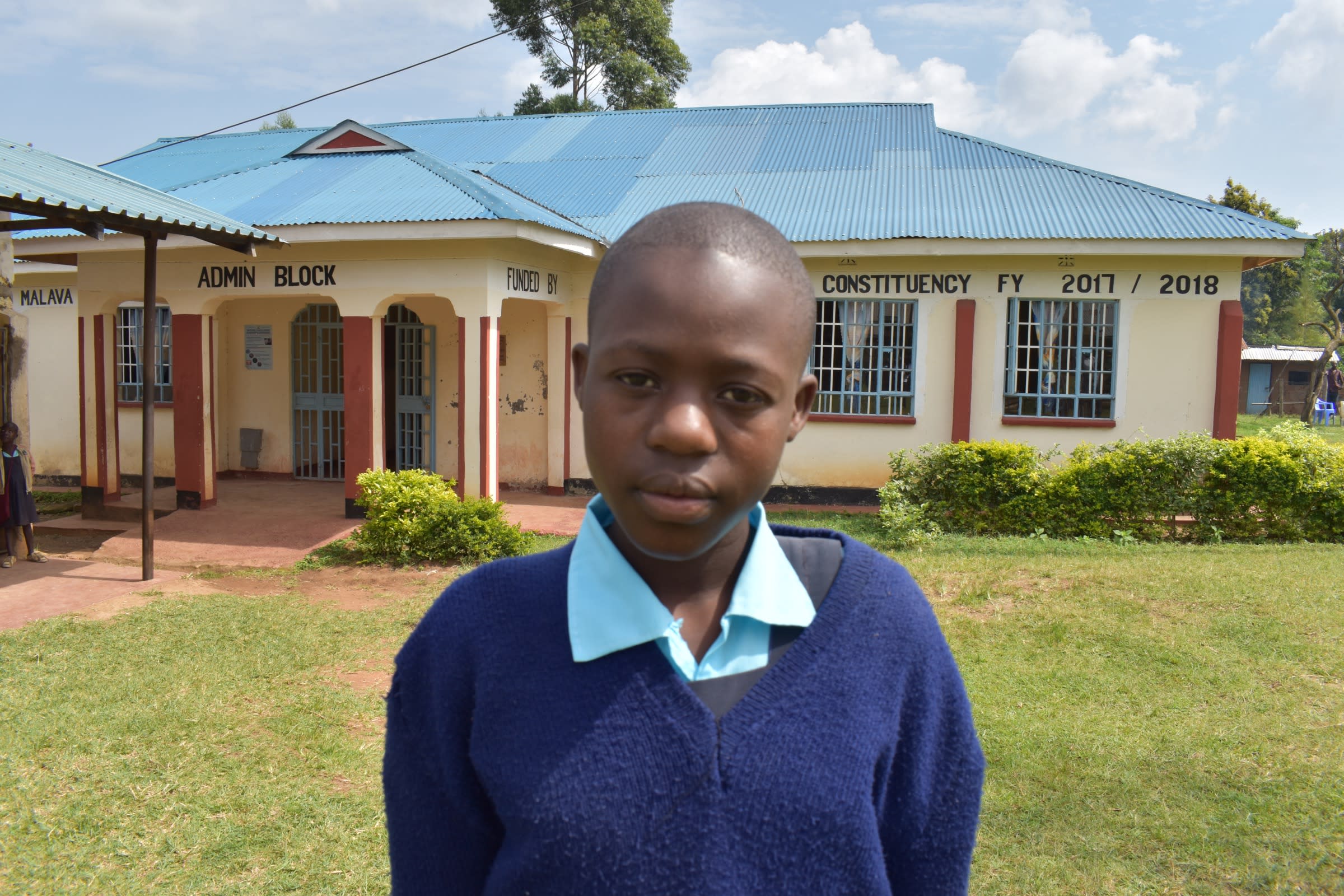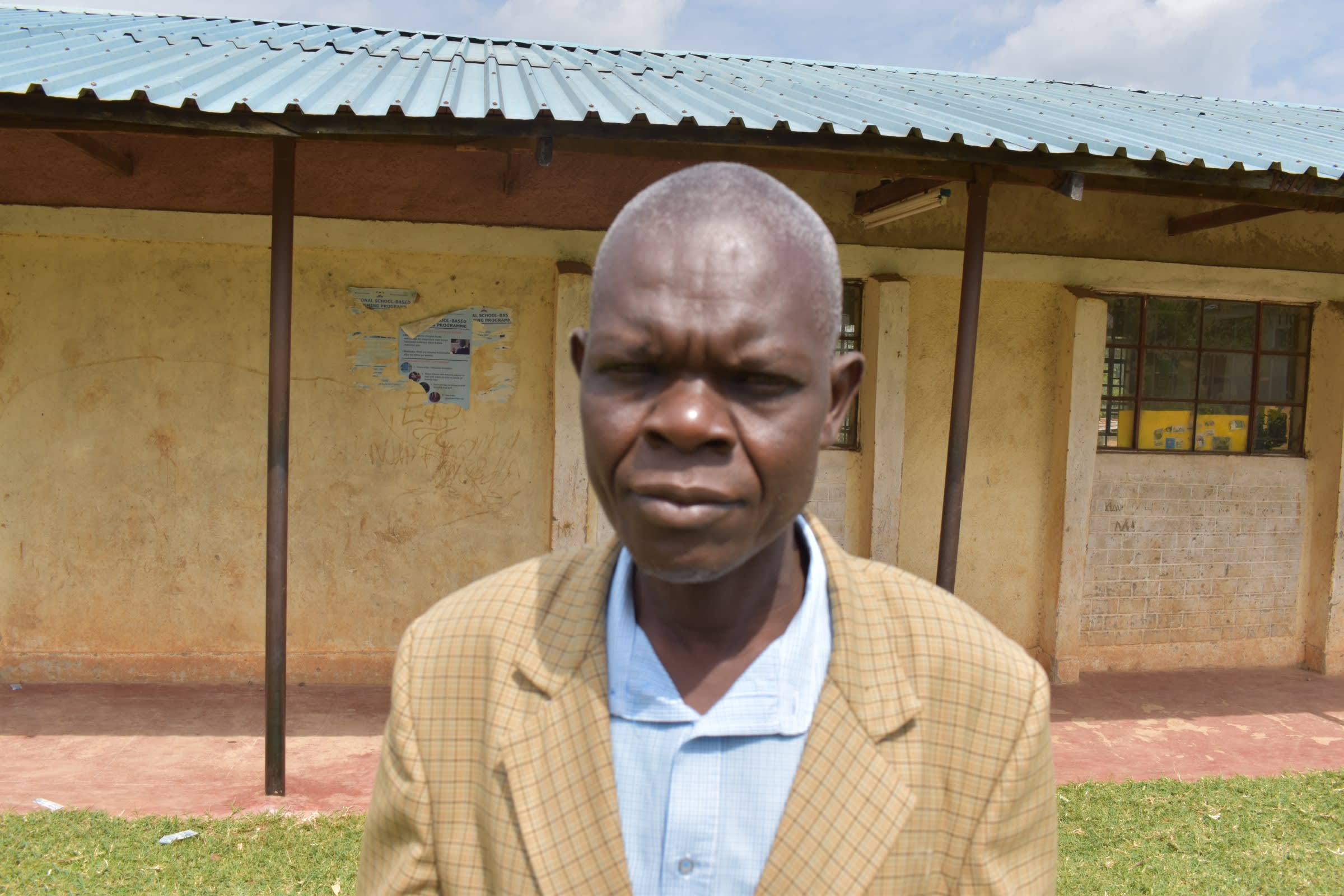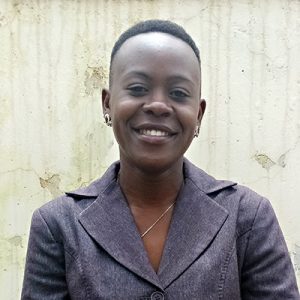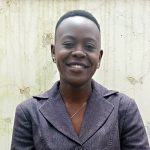The 600 students and 19 staff at Lukova Primary School currently retrieve water from Tali Saya Spring, the main water source in the community, to meet their daily water needs.
"I walk a long distance from home to school. The thought of walking another distance to the spring to get water just kills my spirit of learning. Hunger and fatigue are all I see and feel while in class," said Brenda M. (pictured below), 14.

Pupils carry water to school in the morning. They return home for lunch, collect more water and carry it back to the school for the afternoon session. Then, if there is still not enough water to go around, the students' breaktime is interrupted, and they rush to the spring that is far from the school one more time to collect water. Even when students are in class, the constant task of collecting and hauling water leaves them exhausted and unable to concentrate, leading to poor academic performance.
Teacher Hezrone Mutimba (pictured below), 48, shared his thoughts, "My lessons never come to an end like intended because my pupils will be needed to go and fetch water for [the] kitchen [to] use while the lesson is still on. This drags my syllabus covering [longer] thus poor performance by my pupils. It saddens me."

The other water source, a small rainwater tank on the campus does not offer a reliable solution. Even if it rains and the tank fills it is too small to provide sufficient water for the needs of the school. It doesn't have a tap currently (making it inaccessible), and the gutters are falling apart and never cleaned, which means any water collecting in the tank is likely contaminated.
Providing a well for this school will help ease the distance students have to travel and the burden of constantly collecting water so they can focus on learning. It will also reduce overcrowding at the community spring since it will be shared by those who live near the school with strict limitations that they can only access water during school hours and not interfere with learning.
What We Can Do:
New Well
We conducted a hydrogeological survey at this school and the results indicated the water table beneath it is an ideal candidate for a borehole well. Due to a borehole well's unique ability to tap into a safe, year-round water column, it will be poised to serve all of the water needs for this school's large population, even through the dry months.
The school will help collect the needed construction materials such as sand, rocks, and water for mixing cement. They will also provide housing and meals for the work team, in addition to providing local laborers. We will complement their materials by providing an expert team of artisans and drilling professionals, tools, hardware, and the hand-pump. Once finished, water from the well will then be used by the school's students and staff for drinking, handwashing, cooking, cleaning, and much more.
Handwashing Stations
There is currently nowhere for students to wash their hands after using the latrines or before eating lunch, let alone the water to do so.
The student health club will oversee the two new handwashing stations we will provide, and make sure they are kept clean and in working condition. The club leaders will fill the handwashing stations with water daily and make sure they are always supplied with a cleaning agent such as soap or ash.
VIP Latrines
We will construct two triple-door latrine blocks using local materials that the school will help gather. Three doors will serve the girls and three doors will serve the boys. All of these new latrines will have cement floors that are designed to be easy to use and to clean. And with a borehole right on school property, there should be enough water to keep them clean.
Training on Health, Hygiene, COVID-19, and More
We will hold a one-day intensive training session with students, teachers, and parents. This training will cover a wide range of topics including COVID-19 symptoms, transmission routes, and prevention; personal and environmental hygiene; and the operation and maintenance of the borehole, latrines, and handwashing stations. There will be a special emphasis on handwashing.
Our team of facilitators will use a variety of methods to train, including participatory hygiene and sanitation transformation, and asset-based community development. We will initiate a student health club, which will prepare students to lead other pupils into healthy habits at school and at home. We will also lead lectures, group discussions, and provide illustrative handouts to teach health topics and ways to promote good hygiene practices within the school including handwashing and water treatment. We will then conduct a series of follow-up trainings before transitioning to our regularly scheduled support visits throughout the year.
We and the school strongly believe that all of these components will work together to improve standards at this school, which will help lead to better student academic performance and will help unlock the opportunity for these students to live better, healthier lives.

 Borehole Well and Hand Pump
Borehole Well and Hand Pump
 Rehabilitation Project
Rehabilitation Project






































